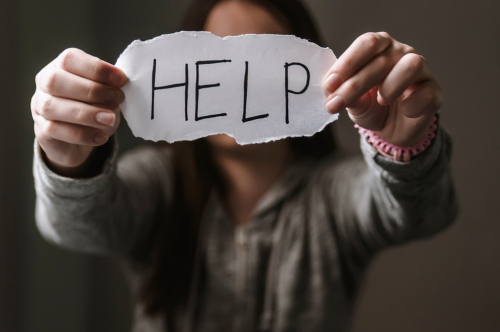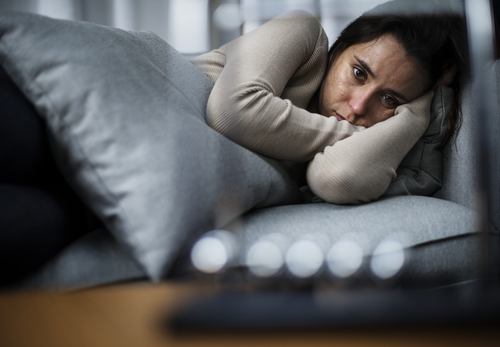Dr. Morse Explains the Bidirectional Relationship Between Depression, Sleep Health
By Anne Marie Morse, DO - Last Updated: February 28, 2025Depression and sleep disorders are closely correlated, with people experiencing insomnia incurring a 10-fold higher risk of depression and 75% of individuals with depression having sleep difficulties. DocWire News spoke with sleep specialist Dr. Anne Marie Morse to better understand this bidirectional relationship, which can affect both patients and healthcare professionals.
Talk to us about the bidirectional link between depression and sleep.
When talking about mental health, it is really important for people to recognize that the full 24 hours definitely make a huge difference. We see that when we’re talking to individuals, especially with something like depression, that we very frequently will reflect on what is their daytime function like? What are they acknowledging as something that is a challenge for them to be successful in?
Most people will associate depression with feelings of having a depressed mood, where they’re not having interest in doing the things that they normally would. The idea of that they may be “sad,” that doesn’t really fit what their life is reflecting. However, what is really important is if you even look at the acronym of SIGECAPS, you are seeing that people are expressing features of either insomnia, and sometimes sleepiness, as symptoms of their depressed mood or depression.
Now, it’s not enough to just say, “Hey, it’s one of the symptoms. It’s not a big deal. We’ll get them on an SSRI. We’ll treat them with something that will elevate their mood and they’re going to be fine.” However, what we now know is that when we’re not actually recognizing and reconciling what our sleep looks like, we generally are not making the moves in our depression outcomes that we should.
So, what’s very interesting is that there is a huge movement in the mental health space with psychologists and psychiatrists to not only further incorporate the evaluation of sleep, but also to strategically utilize sleep as a tool to optimizing our mental health and performance. The reason for this is because there’s increasing literature to demonstrate that not only sleep-wake health, but circadian science, has a very significant pattern.
When we look at the circadian, and even the seasonality, across the year, we tend to find that we may see an elevation and a trough of what we’re seeing in terms of mood and depression symptoms. This is a clear call to action to say we’re not just going to say, “Oh, it’s because it’s the winter blues that you’re having a bad day.” It is a matter of saying, “How are we going to recognize and better predict how to best support a person who is on their own mental health journey?”
It’s important to understand that when we’re looking at individuals who do have a mental health concern, especially something like depression, we see that this is not only critical in terms of the outcomes of optimizing depression outcomes, it may also be critical in being able to reconcile for a suicide risk. We know that insufficient sleep, frequent nocturnal awakenings, and even nightmare disorder can put someone at higher risk for taking their own lives.
There’s been a variety of different concepts as to why this may be occurring. Is it the insufficient sleep that is causing someone to be more impulsive, reactive? Is it the nocturnal awakenings? I’m staying awake in the middle of the , and I am just conceptualizing why my life is such a misery and that maybe I’m better off not being here? Is it the fact that we’re really seeing a reflection of the fact that we’re having neurotransmitter dysfunction that is common between depression and sleep, wake, and circadian because we share an organ?
And so, it is not a luxury for us to be able to acknowledge and reconcile sleep, wake, and circadian facets. It is a necessity. It is a call to action for us to start utilizing sleep as a tool to optimize our mental health and make sure that we’re utilizing it so we can have our best day every day.
What is Behavioral Therapy for Insomnia (CBT-I) and how is it used to treat sleep disturbances in depressed individuals?
When looking at the primary approach for insomnia in any individual, whether you have depressed mood or not, cognitive behavioral therapy has been the gold standard in a recommendation across the American Academy of Sleep Medicine. But even when you look at some specialty organizations like the American Academy of Neurology, we’re saying, “Let’s work on the behavioral strategies first.”
Cognitive therapy has it all on a name. We are using your ability to have awareness, your cognition, to see what it is that you’re engaging in in terms of behaviors that may be maladaptive behaviors. And we’re helping you to be able to replace those behaviors with things that are going to be more aligned with you being able to fall asleep more easily.
When looking at cognitive behavioral therapy, there very frequently is the misperception that this is representing sleep hygiene tips. Sleep hygiene alone has never, ever, ever been shown to fix a sleeper problem. It is only a strategy to prevent the development of sleep disorder. The same very frequently that I will make the analogy to is my friends in a dentistry world. They are going to tell you, “Brush your teeth and floss. Brush your teeth and floss.” Why? Because it is going to prevent the development of cavities. If you came in with a cavity, they wouldn’t just say, “Brush your teeth and floss and go home.” They’re going to say, “We need to drill that.” But they’re also not going to tell you to stop brushing your teeth and flossing.
Similarly, cognitive behavioral therapy is a strategy that is going to incorporate sleep hygiene because these are your sleep health needs. But it’s going to also acknowledge and reconcile giving you the tools, the empowerment to be a part of your treatment solution. Although we all very frequently are looking for, “What is that miracle drug that is going to give me the optimal sleep?” That does not exist alone. No matter what medication I give you, no matter what the pharmacokinetic profile is going to demonstrate, if I am not applying the appropriate strategies to acknowledge your behaviors and empower you on your journey, your behaviors—your maladaptive behaviors—are going to overcome that efficacy, and you’re going to get to the place of feeling more vulnerable to your experience of insomnia.
For individuals with depression, this is even more important. They’re coming from a place for potentially higher vulnerability to that feeling of, “I am not going to be able to get out of this difficult place that I’m currently in.” And so, I’m going to end up being more fixated on my difficulties and being able to fall asleep because it’s a vicious cycle. “I can’t even sleep well. I wake up feeling terrible. I’m dreading going to bed.” These are all of the pieces that we then are going to want to make sure we’re purposely attending to. The person who is having the fear of even going to sleep because of the fact that they’re anticipating not being able to sleep that night. We want to start recognizing that and reconciling that from that moment, not waiting for the time for them to get into bed. So, when thinking about cognitive behavioral therapy, very frequently we are incorporating tools across the full day to get into the best mindset and preparation for the best sleep at night.
Have you observed an uptick in depression and sleep disturbances among your healthcare provider colleagues? If so, how can they navigate these conditions while still providing patient care?
In a healthcare setting, it is not uncommon for us to see depression alone or sleep disorders alone, but it also is not uncommon for us to see those things together. Unfortunately, the 2 of those are going to be bed partners that are going to put you at risk for either way. In a field where many medical professionals are constantly being pulled to the point of a breaking point, it is not uncommon for there to be the feelings of a depressed mood, a feeling of hopelessness, and many times the true evolution to a diagnosis of depression.
In addition to that, because [of] the fact that there are so many hours that are being invested into the full day of work, many people are compromising their sleep to try and get it all done. In the United States, it’s not an uncommon mentality of that, “I will get away with less sleep in order to do more.” Unfortunately, this puts us at the susceptibility of not being our optimal selves at any point in the day, and actually being at higher risk for errors as well as taking a longer time and having reduced efficiencies. This is really going to result in a vicious cycle of a vulnerability of having a mounting number of things to do, continuing to cut back on sleep, continuing to feel as though we’re inadequate in what it is that we’re trying to deliver on, and really resulting in this buzzword that we’re all talking about, a burnout.
The reality is, is that where we’re at right now is trying to identify how do we stop the victimization mentality and how do we start our day with a feeling of empowerment; to understand that there are things that we can do to be able to address both those feelings of depression as well as the inadequate quality, timing, regularity, and duration of sleep.
Things that you’re going to want to be able to do is first and foremost, recognize if that’s something that is resonating with you as you’re listening to this. If you’re a healthcare professional and you’re going, “Yeah, I’ve been getting away with 4or 5 hours sleep for the last decade. And yeah, I dread getting out of bed, not just because I feel like I’m dragging, but because I don’t enjoy the thing that I once loved.” This message is for you. This is your call to action today to recognize, to look in the mirror and say, “I’m choosing me, and I’m choosing a better version of what I can live.”
And the tools that you can utilize are working with your primary care provider, working with a psychologist, working with yourself to actually keep track of the symptoms that you’re experiencing so that you can best be able to convey that to the partners that you’re working with. There’s sometimes is a healthcare professional where we are unwilling to partner with other clinicians because of the fact that we have a fear or a stigma associated with it that, we’re bigger than us, that we’re stronger than it.
But the reality is, is that there are a ton of tools that can help in being able to identify—whether it’s medications, whether it’s cognitive behavioral therapy, which we’ve talked about, or whether or not there are other sleep disorders that may be driving at this. The first priority is recognizing that this is something that is occurring, and then understanding and appreciating that there’s something that can be done about it. Make that your priority today. Make you a priority.







 © 2025 Mashup Media, LLC, a Formedics Property. All Rights Reserved.
© 2025 Mashup Media, LLC, a Formedics Property. All Rights Reserved.